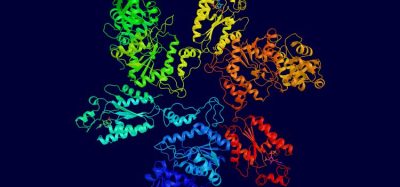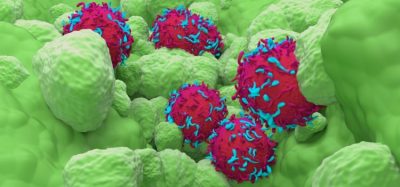Enhertu HER2-directed cancer treatment: key trials and results
Posted: 1 October 2021 | Anna Begley (European Pharmaceutical Review) | No comments yet
EPR’s Anna Begley reviews some of the latest results for AstraZeneca’s Enhertu (trastuzumab deruxtecan) HER2-directed cancer therapy.


Enhertu reduces HER2-positive breast cancer risks by 72 percent
Detailed positive results from the head-to-head DESTINY-Breast03 Phase III trial showed that Enhertu demonstrated superior progression-free survival (PFS) versus trastuzumab emtansine (T-DM1), a HER2-directed antibody-drug conjugate (ADC) currently approved to treat patients with HER2-positive unresectable and/or metastatic breast cancer previously treated with trastuzumab and a taxane.
At a prespecified interim analysis of DESTINY-Breast03, Enhertu demonstrated a 72 percent reduction in the risk of disease progression or death compared to T-DM1. After 15.5 and 13.9 months of follow-up in the Enhertu and T-DM1 arms respectively, the median PFS for patients treated with Enhertu was not reached, compared to 6.8 months for T-DM1. This was assessed by blinded independent central review (BICR).
There was a strong trend towards improved overall survival (OS) with Enhertu. Overall, 94.1 percent of patients treated with Enhertu were alive at one year compared to 85.9 percent of patients treated with T-DM1.
Confirmed objective response rate (ORR) more than doubled in the Enhertu arm versus the T-DM1 arm (79.7 percent versus 34.2 percent). 16.1 percent complete responses (CR), and 63.6 percent partial responses (PR) were observed in patients treated with Enhertu compared to 8.7 percent CRs and 25.5 percent PRs in patients treated with T-DM1.
Thirty-eight percent overall response rate confirmed in Phase II gastric cancer trial
Detailed results from the positive Phase II DESTINY-Gastric02 trial showed that Enhertu provided a clinically meaningful and durable tumour response in patients with HER2-positive metastatic and/or unresectable gastric or gastroesophageal junction (GEJ) adenocarcinoma previously treated with a trastuzumab-containing regimen.
In the primary analysis of DESTINY-Gastric02, the first trial of Enhertu specifically in Western patients with HER2-positive metastatic gastric cancer or GEJ adenocarcinoma, Enhertu (6.4 mg/kg) demonstrated a confirmed overall response rate (ORR) of 38 percent, as assessed by independent central review (ICR). In the trial, 3.8 percent of patients treated with Enhertu had complete responses (CR) and 34.2 percent partial responses (PR).
After a median follow-up of 5.7 months, the median duration of response (DoR) of Enhertu was 8.1 months. The median progression-free survival (PFS) was 5.5 months. An exploratory endpoint of confirmed disease control rate (DCR) of 81 percent was also seen.
Summary of Results
Efficacy Measure | Total Evaluable (n=79) |
Confirmed ORR (95 percent CI) | 38.0 percent (27.3-49.6) |
Complete response | 3.8 percent |
Partial response | 34.2 percent |
Stable disease | 43.0 percent |
DCR (95 percent CI) | 81 percent (70.6-89.0) |
Median DoR (months) (95 percent CI) | 8.1 months (4.1-NE) |
Median PFS (months) (95 percent CI) | 5.5 months (4.2-7.3) |
Enhertu demonstrates 54.9 percent overall response rate in NSCLC patients
Detailed primary results from the positive Phase II DESTINY-Lung01 trial of Enhertu showed a robust and durable tumour response in previously treated patients with HER2-mutant (HER2m) unresectable and/or metastatic non-squamous non-small cell lung cancer (NSCLC).
Primary results from the HER2m cohort (cohort 2) of DESTINY-Lung01 in previously treated HER2m NSCLC demonstrated a confirmed objective response rate (ORR) of 54.9 percent in patients treated with Enhertu (6.4 mg/kg) as assessed by independent central review (ICR). Overall, 1.1 percent had a complete response (CR) and 53.8 percent a partial response (PR).
A confirmed disease control rate (DCR) of 92.3 percent was seen with a reduction in tumour size observed in most patients. After a median follow-up of 13.1 months, the median duration of response (DoR) for Enhertu was 9.3 months. The median progression-free survival (PFS) was 8.2 months and the median overall survival (OS) was 17.8 months.
The overall safety profile of Enhertu was consistent with previous Enhertu NSCLC trials, with no new safety signals identified. The most common Grade 3 or higher drug-related treatment-emergent adverse events were neutropenia (18.7 percent) and anaemia (9.9 percent). Rates of treatment-related interstitial lung disease (ILD) or pneumonitis were consistent with previous trials in lung cancer.
About Enhertu
Enhertu is a HER2-directed ADC. Designed using Daiichi Sankyo’s proprietary DXd ADC technology, Enhertu is the lead ADC in the oncology portfolio of Daiichi Sankyo and the most advanced programme in AstraZeneca’s ADC scientific platform. The treatment consists of a HER2 monoclonal antibody attached to a topoisomerase I inhibitor payload, an exatecan derivative, via a stable tetrapeptide-based cleavable linker
Related topics
Anti-Cancer Therapeutics, Antibodies, Big Pharma, Biologics, Clinical Trials, Data Analysis, Dosage, Drug Safety, Research & Development (R&D), Therapeutics
Related organisations
Related drugs
Related diseases & conditions
HER2-positive breast cancer, HER2-positive metastatic gastric cancer, non-small cell lung cancer (NSCLC)









